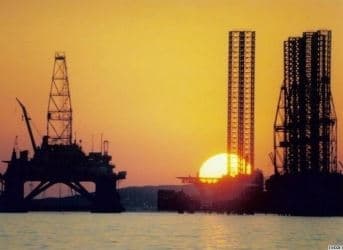May 5th marked the 66th anniversary of the founding of Israel. As the Jewish state marked the occasion, the government looks forward to exploiting the recently discovered oil and gas fields just off its coast. But as with everything else in the Middle East, there are certain realities and complications to consider.
First, some history.
The 1973 Arab-Israeli War, also known as the Yom Kippur War in Israel, or the October War in the Arab world, revealed three very important landmarks in the Arab-Israeli conflict.
First, it brought an element of reality to an over-confident and somewhat arrogant Israel, inebriated by their stunning victory in the June 1967 Six Day War. Emerging from a climate of doom and gloom that permeated the country in the early years of independence, the Six Day War made many Israelis believe they were invincible. 1973 was a rude wake-up call.
The 1973 Arab-Israeli War caught Israelis unprepared and with their guard down. Their intelligence service, which had scored so many daring feats around the world, had failed to read the signs or issue warnings that Egypt and Syria were preparing to launch surprise attacks.
At 2 p.m., on the afternoon of October 6, 1973 -- the eve of the most holy day in Israel, Yom Kippur -- with the sun positioned favorably for the Egyptian Army, the offensive began and the Egyptians crossed the Suez Canal and overran the “impregnable” Bar Lev Lines. At the same time, an assault was also launched on the Syrian front to recapture the Golan Heights that Israel had occupied during the Six-Day War, along with the Sinai Peninsula and the Gaza Strip, which it took from Egypt, and the West Bank and the crown jewel of the campaign, Arab East Jerusalem, which it captured from Jordan.
Related Article: Israel and Egypt: A Natural [Gas] Match
Second, the 1973 Arab-Israeli War gave the Arabs a much-needed victory -- victory later partially reversed by Israel –- and a boost of confidence. More importantly, it helped raise Arab morale and partially erased the terrible feeling of collective shame that was felt throughout the Arab world after the defeat of 1967.
The 1973 war allowed the Arab leaders to sit at the same negotiating table with the Israelis and to look them in the eyes without feeling defeated.
It was also important in that it made the Israelis realize that they could lose, and therefore encouraged them to start thinking that talking peace with the Arabs should become a reality.
At the same time, it revealed to the Arabs that Israel, though not as invulnerable as it would have liked to have the Arabs believe, was still unbeatable, and therefore, perhaps more could be accomplished through peace, especially given that the United States demonstrated it would stand firmly by Israel. If there ever was a war that was needed to contribute towards peace, it is without a doubt the 1973 Arab-Israeli War.
Without 1973, Egypt’s President Anwar Sadat would have never gone to Jerusalem as he did, thus paving the way for the Camp David peace talks between Israel and Egypt. While the accords reached at Camp David were quite controversial in the Arab world and divided public opinion between those who welcomed partial peace and those who preferred to hold out for a complete settlement of the crisis, it nevertheless allowed Egypt to recuperate all its occupied territories.
Today, while that peace is somewhat fragile, to say the least, Israel still maintains diplomatic relations with at least two of its Arab neighbors, Egypt and Jordan, and maintains commercial links with several of the Arab Gulf countries.
Related Article: Israeli Set To Become Major Exporter Of Natural Gas
Third, the 1973 Arab-Israeli War made the Arabs realize that although the Israeli military was better armed, better trained and better equipped -- with its mostly U.S. and Western European-made weapons and weapon systems -- the Arabs, who relied on inferior Soviet weaponry, nevertheless possessed an important card up their sleeves: oil.
Indeed, it was during the 1973 Arab-Israeli War that oil was first deployed as a weapon by the Arab oil producing countries in support of Egypt and Syria.
Since the 1970s and 80s, the threat of oil embargoes against the West has diminished greatly for a number of reasons. First, the Middle East is not the only source of oil and gas today. Second, the whole geopolitical map of the world has vastly changed since the 70s, when the Arab sheikdoms were primarily worried about their Persian neighbor across the Gulf and could still depend on the United States for protection; with the Cold War still going strong, the U.S. was not about to let the Soviets replace them in the Middle East.
Today, as Israel celebrates the 66th anniversary of its founding, it too sits atop an important supply of oil just off its northern coast. In any other region of the world this might have been a joyful event. But the Lebanese Shiite militia Hezbollah – an ally of Syria and Iran – threatens now and again to attack Israeli offshore oil platforms. But a settlement between Israel and Hezbollah would require that a settlement be reached between Israel and Iran and Israel and Syria. That is not likely to happen anytime soon.
Such a move would of course deny Israel the ability to exploit this facility – and in the process deny it an important source of revenue. Of course, in so doing, Hezbollah would at the same time prevent Lebanon from exploiting that same source of revenue for Lebanon, which the country badly needs.
But since when has logic prevailed in the Middle East? Just ask the turtle who offered a ride to the scorpion across the Jordan River.
By Claude Salhani of Oilprice.com

















